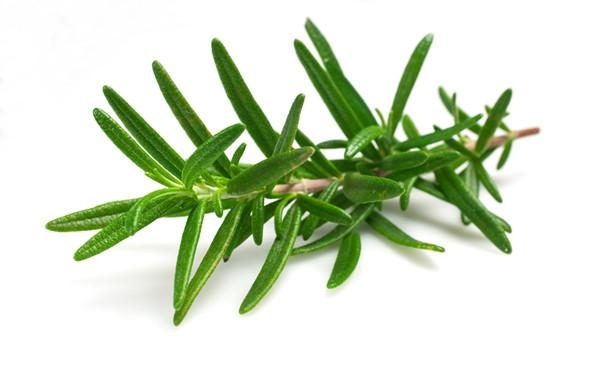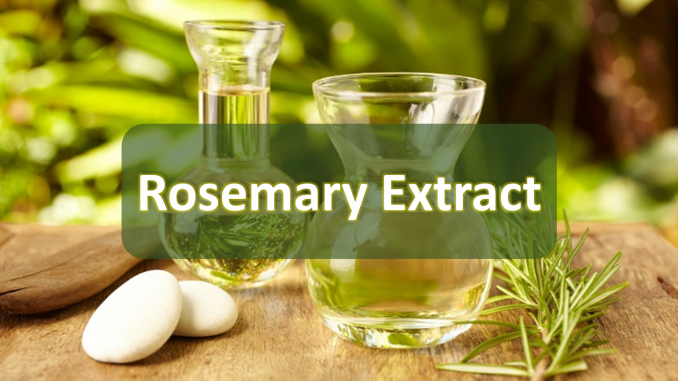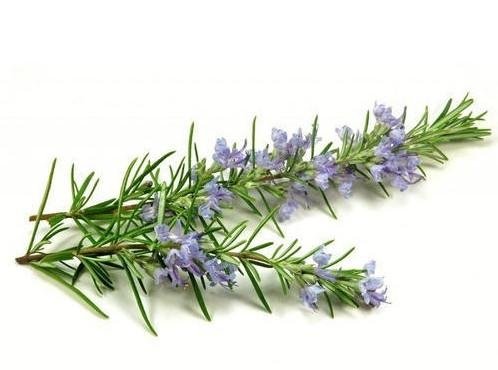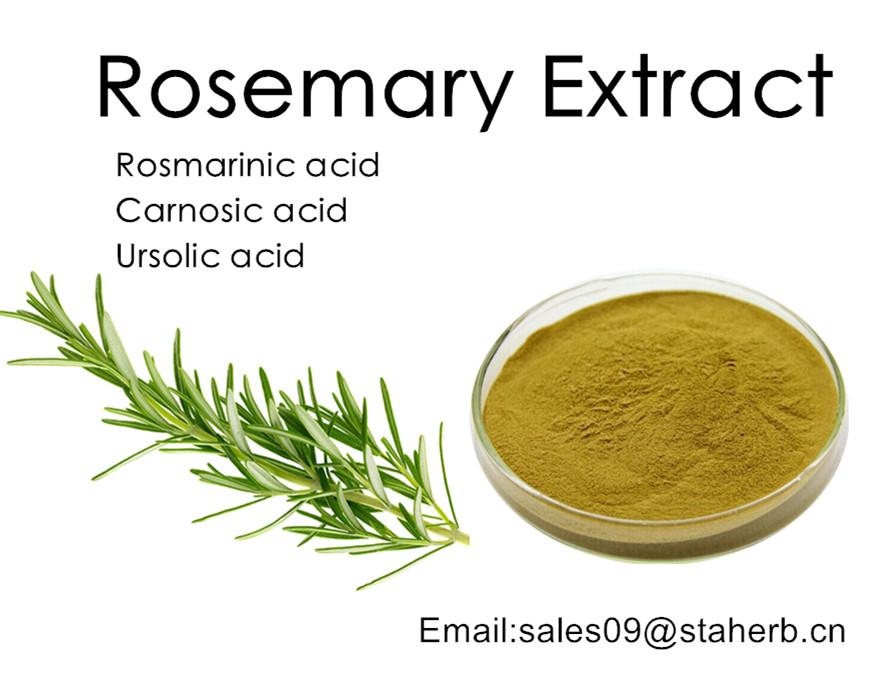About Rosemary
Antioxidant Activity of Rosemary Extract
Rosemary extract is popular as a natural antioxidant due to its strong antioxidant capacity and fat-soluble property. The use of rosemary extract as a natural antioxidant was first reported in 1955. Scientists found that rosemary extract as a natural antioxidant had a better antioxidant capacity than BHT and BHA. It was reported that all rosemary extracts showed strong inhibitory effects on lipid oxidation. The antioxidant capacity of rosemary extract was attributed to the presence of phenolic diterpenes that scavenge singlet oxygen, hydroxyl radicals, and lipid peroxyl radicals, thereby preventing lipid oxidation. Three types of phenolic diterpenes are found in rosemary extract: carnosic acid, carnosol, and rosmanol; with carnosic acid present as the major phenolic diterpene. In addition, studies indicated that carnosic acid was the most active antioxidant component in rosemary extracts.
Rosemary Extracts as Food Additive
It is normally only the leaves of rosemary that are commonly used as a culinary herb, flavoring agent and naturally occurring antioxidant. Today, rosemary extracts are increasingly employed not only to provide flavor but also as natural alternatives to synthetic antioxidants for the stabilization of oxygen-sensitive foods. Extracts of the plant rosemary can have both flavoring and antioxidative properties. In many cases both functions are utilized within a food, however, it can be the case that some extracts are sold primarily for their antioxidant properties. In such cases the processing of the rosemary extract can be optimized to enhance the antioxidative function and to reduce that of flavoring.
Dairy products contain lipids rich in polyunsaturated fatty acids and their esters are easily oxidized by molecular oxygen over time. Deleterious changes in dairy products caused by lipid oxidation include not only loss of flavor or development of off-flavors, but also loss of color, nutrient value, and the accumulation of compounds, which may be detrimental to the health of consumers. One of the most effective ways of retarding lipid oxidation in dairy products is to incorporate antioxidants. Supplementation dairy products with natural antioxidants (polyphenolic compounds) are better using than synthetic antioxidant and could be potentially. The use of rosemary as natural antioxidant in dairy products can reduce the rate of lipid oxidation and hydrolysis besides may be beneficial in increasing the shelf life of these products. This supplementation will move these products into the functional food area under new category as healthy dairy products.
|
Rosemary Extract
|
|
Active
Ingredients
|
Specs
|
Test Method
|
Appearance
|
Solubility
|
|
Rosmarinic acid
|
5-95%
|
HPLC
|
Brown yellow to yellow powder
|
Water soluble
|
|
Carnosic acid
|
5-98%
|
HPLC
|
Brown yellow to yellow powder
|
Oil soluble
|
|
Carnosic acid
(Oil)
|
5-20%
|
HPLC
|
Brown yellow liquid
|
|
Ursolic acid
|
5-98%
|
HPLC
|
Greenish yellow to white
|
Water soluble
|
|
Rosmary
essential oil
|
|
GC
|
Light yellow liquid
|
|
|
Rosemary
Hydrosol
|
|
|
|
|





